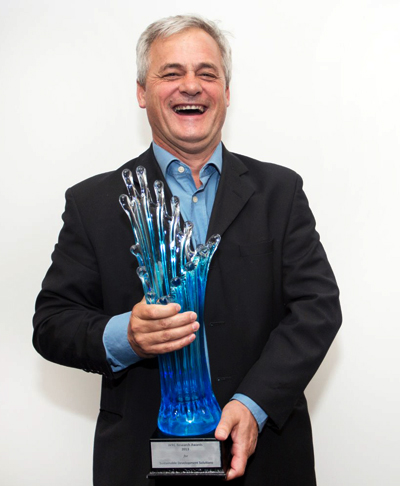 |
| Prof Leon van Rensburg |
The university’s advancement of research excellence recently found further embodiment in Prof Leon van Rensburg from the Department of Soil- and Crop- and Climate Sciences. His expertise in the water sector resulted in award-winning research.
Prof Van Rensburg received the award for Sustainable Development Solutions 2013 at the Water Research Commission (WRC) Symposium held at the CSIR in Pretoria. The symposium acknowledged local scientific solutions that have had a global impact. Prof Van Rensburg was recognised for his outstanding research guiding the management of salinity under irrigation at farm level in South Africa – ensuring food production. The paper that earned him this honour is entitled “Rainwater harvesting and conservation practices: challenges and opportunities for sustainable land and water use of ‘The Green Village’ in arid to semi-arid climate zones.”
The awards were linked to the WRC’s newly-adopted corporate planning tool named the ‘Knowledge Tree’, guiding the commission’s operations. The ‘Knowledge Tree’ functions as a yardstick with which the WRC measures its impact in essential areas. The presentation of these accolades underscored the importance of water science and water technology in improving the daily reality of people at grassroots level.
Prof Van Rensburg’s research goal is to enhance the efficiency of water usage of crop production systems in both the dryland and irrigation sectors. Part of his latest achievements include being editor for a special edition of the Irrigation and Drainage Journal (2012; vol 61) on rainwater harvesting.
Prof Chris du Preez, co-author of the winning paper, is an expert on soil quality, especially organic matter. He serves as the Head of the Department of Soil, Crop and Climate Sciences and has also acted as President of the Soil Science Society of South Africa. His current research focuses on agricultural land use and soil organic matter changes, soil fertility and fertilisation, and agriculture water quality and usage.